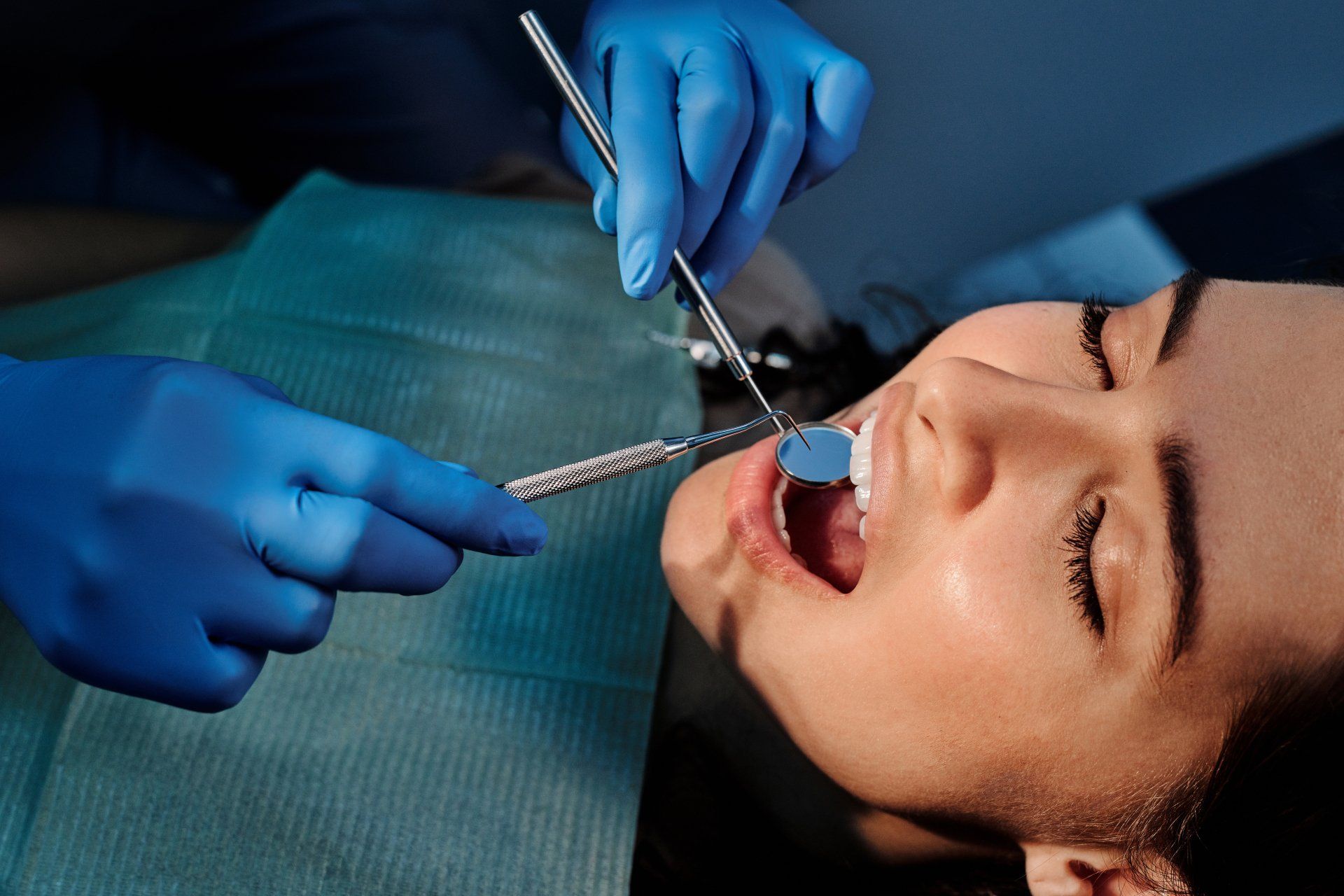How to Diagnose and Treat Bruxism

Bruxism: Diagnosis and Treatments
Bruxism, otherwise known as teeth grinding, is a condition that causes you to clench your teeth and therefore puts pressure on the teeth and jaw. This may happen unconsciously during the day, or while sleeping through the act of grinding the teeth.
Sleep bruxism is different from daytime bruxism because it is considered to be a movement disorder related to sleep. People who grind their teeth while they are asleep are at an increased risk of having other sleep disorders, such as sleep apnea.
While mild bruxism may only cause minor wear to the teeth, some people who have bruxism experience severe effects such as jaw disorders, damaged or cracked teeth, headaches, and other health problems. Many people are unaware that they suffer from bruxism when it happens during their sleep until related complications develop. It is important to know the signs and symptoms of this disorder and to see a dentist to create a proper treatment plan.
Symptoms
Teeth grinding can result in flattened, fractured, loose, or chipped teeth. This is due to the enamel of the tooth being worn off during the grinding process. When the enamel wears off, it exposes deep layers of the teeth, which can lead to increased tooth sensitivity. Bruxism may also result in jaw pain, tight jaw muscles, earaches, dull headaches, indentations to the tongue, or damage to the inside of the cheeks.
It is important to see a dentist if your teeth are worn down or damaged for no clear reason. It is also important to see a dentist if your jaw tends to lock or it does not open and close completely. Some may find out they need to consult a dentist when others sleeping near them complain about the grinding noise that they make while sleeping.
Causes
While doctors do not completely understand the cause of bruxism, the Mayo Clinic reports that there are some potential physical or psychological factors that may come into play. Constant anxiety or stress can lead you to tense your body and your teeth during sleep without being aware of doing so. Also, people who tend to be aggressive or competitive are more likely to experience bruxism while they are focused. It may also be caused by an abnormal alignment of the teeth.
Children may experience bruxism in response to the pain caused by an earache or in babies who are teething. It may also be related to other disorders such as sleep apnea, Huntington’s disease, and Parkinson’s disease.
Risk Factors
According to the U.S. National Library of Medicine , some risk factors that increase someone’s likelihood of having bruxism are high stress or anxiety levels, intense anger, young age, and using stimulating substances such as tobacco, caffeinate or alcohol, or illegal drugs such as methamphetamine.
Diagnosis
During a routine dental exam, your dentist will check for any signs of atypical wear on the teeth, including bruxism. If the wear is progressive with time, your dentist will determine if you need treatment.
If bruxism is suspected, your dentist will evaluate its extent and try to determine the root cause by asking general questions. To evaluate the extent of the problem, a dentist will check the tenderness in the jaw muscles, look for broken or missing teeth, and assess the damage that has been done to the teeth and the inside of your cheeks.
Treatment
If your dentist believes that there may be a psychological component to your bruxism, you may be referred to a sleep specialist or therapist. A sleep specialist may do further testing, such as looking for signs of sleep apnea or monitoring how frequently your jaw muscles clench in your sleep.
For more information about bruxism diagnosis and treatment, contact South Temple Dental today.
The post How to Diagnose and Treat Bruxism appeared first on South Temple Dental.


